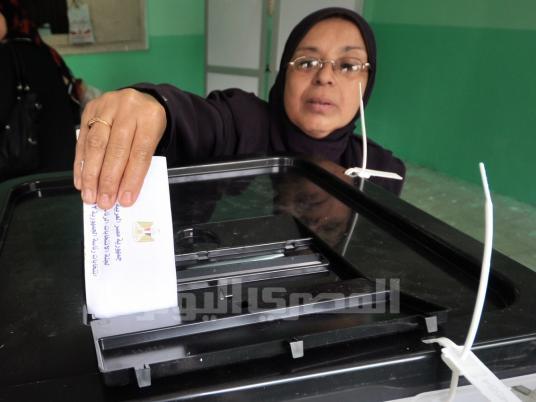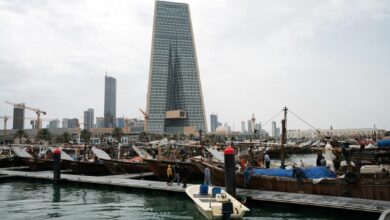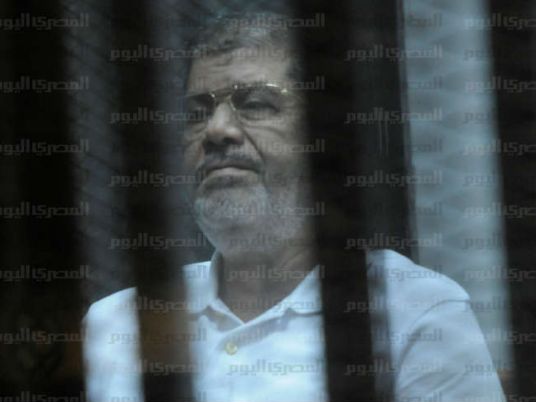
The papers are in a bombastic mood today as Egyptians go to the polls in what is being touted as the Arab world’s first free presidential election.
Private daily Al-Shorouk asks, “Who will take the presidency today?” State-run Al-Gomhurriya declares: “The president is in the ballot box and the people have the key.” Salafi party paper Al-Nour trumpets that its man, Abdel Moneim Abouel Fotouh, is “at the doors of the presidency.” State paper Al-Akhbar tells its readers that their votes “= the future of Egypt.” Liberal party paper Al-Wafd says, perhaps somewhat optimistically, that Egypt today “says goodbye to the age of oppression,” while at the other end of the spectrum privately owned Al-Dostour tells Egyptians who have been unconscious for the past three months that “the race for the presidential seat starts today.”
State daily Al-Ahram’s coverage is largely concerned with logistical matters, such as the number of polling stations and voters, the army’s security preparations and matters concerning NGO and media observation of the process.
Its front page points out that voters are electing a president in the absence of a constitution: the constitution-drafting process descended into chaos shortly after it began when political forces objected to the largely Islamist makeup of the Constituent Assembly formed to write the charter.
On a related note, liberal Al-Wafd newspaper asks where the president will swear the oath: before Parliament or the ruling Supreme Council of the Armed Forces? It leads by saying that constitutional legal experts are divided on the issue, before quoting five constitutional lawyers as saying that the president will be sworn in before the People’s Assembly as described in the Constitutional Declaration.
Two legal experts contradict this opinion, however, saying SCAF is currently running the country and is the body that will hand over executive powers to the new president.
Al-Ahram editor Mohamed Abdel Hady Aalam calls on voters to remember the revolution’s martyrs as they cast their ballots, saying, “the majority of political powers … have forgotten the blood of the martyrs that gave them their freedom.”
Al-Ahram also reports that Saudi Arabia is giving Egypt US$2.2 billion to prop up the Egyptian economy, of which $500 million is expected to be delivered early next month.
Al-Nour dedicates the bottom half of its front page to the news that Al-Azhar held a meeting with Salafi, Sufi and Muslim Brotherhood figures to “combat the spread of Shia Islam” in Egypt. The meeting follows reports that the first Husseineyya, a place where Shia Muslims gather to remember the killing of Hussein, the son-in-law of Prophet Mohamed, has been established in Egypt after a visit by Shia leader Ali al-Kawarny.
This week’s edition of the paper also includes an eight-page insert dedicated to Abouel Fotouh, who the Nour Party has endorsed.
In an unfortunate mix-up, Al-Nour swaps the captions on photographs for Mohamed Morsy and Amr Moussa in its profiles of the presidential candidates.
Al-Shorouk has a snoop round the candidates’ campaign headquarters. Abdel Moneim Abouel Fotouh’s campaign reportedly consists of committees such as the media and political committees each staffed by no less than 15 volunteers. The campaign headquarters walls are covered with motivational sayings — “Don’t make us lose faith in you” and “Smile, it’s a sunnah” next to a smiley face.
The paper also reports that the headquarters of Muslim Brotherhood candidate Mohamed Morsy, a stone’s throw away from the Interior Ministry, have been transformed into a press center for local and international journalists who will be provided with voting figures as the day progresses.
State-run Al-Akhbar reports that a case has been filed against Information Minister Ahmed Anis and the head of Nilesat to halt broadcasting of Al-Teet channel, which is dedicated to belly dancing. The unnamed lawyers who raised the complaint claim that the channel is obscene.
In non-election news, Al-Gomhurriya has a panicky story in which it says that the Egyptian economy is under attack from counterfeit money.
The state daily begins the story by having a dig at the “nonstop political events and the volume of sit-ins and protests” which, together with the security vacuum, mean that the Egyptian economy is on the verge of “collapse.”
The high-quality counterfeit currency is known as “Chinese money” or “Israeli currency,” the latter because, according to experts such as Mohamed Zeidan of Zagazig University, “Israel is the official sponsor of this crisis of the Chinese money that has been flooding the Egyptian economy since the January 2011 revolution with the aim of spreading chaos and causing instability.”
The article states that some LE60 million worth of fake Egyptian currency has entered the domestic economy from abroad.
Independent Al-Tahrir reports that there have been complaints of “chaos” in the assignment of judges to oversee polling stations and that Presidential Elections Commission Secretary General Hatem Bagato has had to deal with last-minute notices from 300 judges excusing themselves, as well as complaints from other judges about their assignments.
Egypt’s papers:
Al-Ahram: Daily, state-run, largest distribution in Egypt
Al-Akhbar: Daily, state-run, second to Al-Ahram in institutional size
Al-Gomhurriya: Daily, state-run
Rose al-Youssef: Daily, state-run
Al-Dostour: Daily, privately owned
Al-Shorouk: Daily, privately owned
Al-Watan: Daily, privately owned
Al-Wafd: Daily, published by the liberal Wafd Party
Youm7: Daily, privately owned
Al-Tahrir: Daily, privately owned
Freedom and Justice: Daily, published by the Muslim Brotherhood’s Freedom and Justice Party
Sawt al-Umma: Weekly, privately owned
Al-Arabi: Weekly, published by the Nasserist Party
Al-Nour: Official paper of the Salafi Nour Party


